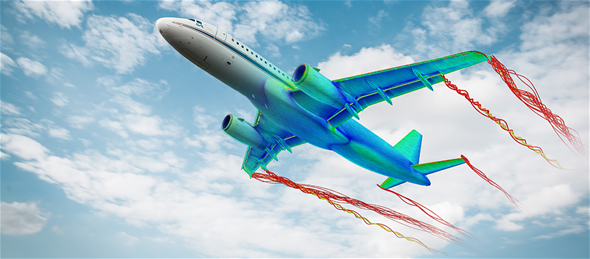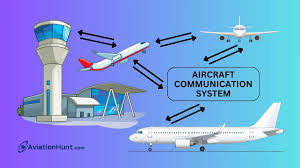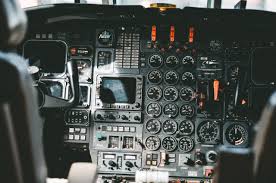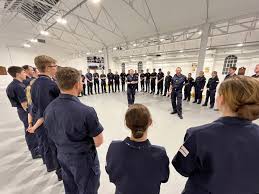AVIATION STUDIES
-
Welcome to your new Gnomio site
Now, you are in control!
Moodle is an open-source Learning Management System (LMS) that provides educators with the tools and features to create and manage online courses. It allows educators to organize course materials, create quizzes and assignments, host discussion forums, and track student progress. Moodle is highly flexible and can be customized to meet the specific needs of different institutions and learning environments.
Moodle supports both synchronous and asynchronous learning environments, enabling educators to host live webinars, video conferences, and chat sessions, as well as providing a variety of tools that support self-paced learning, including videos, interactive quizzes, and discussion forums. The platform also integrates with other tools and systems, such as Google Apps and plagiarism detection software, to provide a seamless learning experience.
Moodle is widely used in educational institutions, including universities, K-12 schools, and corporate training programs. It is well-suited to online and blended learning environments and distance education programs. Additionally, Moodle's accessibility features make it a popular choice for learners with disabilities, ensuring that courses are inclusive and accessible to all learners.
The Moodle community is an active group of users, developers, and educators who contribute to the platform's development and improvement. The community provides support, resources, and documentation for users, as well as a forum for sharing ideas and best practices. Moodle releases regular updates and improvements, ensuring that the platform remains up-to-date with the latest technologies and best practices.
Links of interest:
(You can edit or remove this text)
Course categories
Skip available courses
Available courses

This course provides a comprehensive overview of aircraft airframe construction, design principles, materials, and maintenance practices. Students will explore the fundamental concepts of structural integrity, aerodynamics, and load distribution as they relate to airframe design. Through lectures, discussions, and practical exercises, students will gain a thorough understanding of the various components of an airframe, including wings, fuselage, empennage, and control surfaces. The course will also cover airframe inspection, repair techniques, and relevant safety regulations. This course is essential for aspiring aircraft maintenance technicians, engineers, and aviation professionals seeking a solid foundation in airframe technology.
- Teacher: Kelvin Maiya
- Teacher: Odel Trainer

This course provides a comprehensive exploration of gas turbine engines, the powerplants that revolutionized aviation and various industrial applications. Students will delve into the fundamental principles of thermodynamics, fluid mechanics, and combustion that govern the operation of these complex machines.
The course will cover the thermodynamic cycles (Brayton cycle), component design and function (compressors, combustors, turbines), performance characteristics, and operational aspects of gas turbine engines. Students will gain an understanding of the various types of gas turbine engines, including turbojets, turbofans, turboprops, and turboshafts, and their specific applications.
Furthermore, the course will address the challenges and advancements in gas turbine technology, including materials science, emissions reduction, and efficiency improvements. Through lectures, discussions, and practical examples, students will develop a strong foundation in the theory and practice of gas turbine engineering, preparing them for careers in aviation, power generation, and related industries.
- Teacher: Kelvin Maiya

Welcome to the fascinating world of aerodynamics! This course will introduce you to the fundamental principles that govern the motion of air and its interaction with objects, particularly aircraft. Aerodynamics is a crucial field in aerospace engineering, but its principles extend to many other areas, from automotive design to wind energy.
By the end of this course, you will have a strong understanding of the fundamental principles of aerodynamics and their importance in various fields.
Let's begin our journey into the world of flight!
- Teacher: key em
- Teacher: Kelvin Maiya
- Teacher: Odel Trainer

Welcome to the Airfield Safety course! This course is designed to provide you with a comprehensive understanding of the critical safety practices and procedures necessary for working in and around an airfield environment.
*Why is Airfield Safety Important?*
Airfields are dynamic and potentially hazardous environments. The constant movement of aircraft, vehicles, and personnel creates unique safety challenges.
By the end of this course, you will be equipped with the knowledge and skills to contribute to a safe and efficient airfield operation. Let's work together to create a safe environment for everyone!
- Teacher: Kelvin Maiya

Welcome to the Aircraft Navigation and Communication Systems course! This course is designed to provide you with a comprehensive understanding of the vital systems that enable pilots to navigate safely and communicate effectively during flight.
This course will require a blend of theoretical understanding and practical application. You will develop the skills necessary to understand, operate, and maintain aircraft navigation and communication systems.
By the end of this course, you will have a solid foundation in the principles and practices of aircraft navigation and communication, preparing you for further studies or a career in aviation operations or maintenance. Let's begin our exploration of the interconnected world of flight!
- Teacher: Kelvin Maiya

Welcome to the Aircraft Electrical and Instrumentation course! This course will provide you with a foundational understanding of the critical electrical systems and instrumentation that power and inform modern aircraft operations.
This course will require a blend of theoretical understanding and practical application. You will develop the skills necessary to understand, maintain, and troubleshoot aircraft electrical and instrument systems.
By the end of this course, you will have a solid foundation in the principles and practices of aircraft electrical and instrumentation, preparing you for further studies or a career in aviation maintenance or related fields. Let's begin our exploration!
- Teacher: Kelvin Maiya
- Teacher: Odel Trainer

Welcome to the course on Leadership, Command, and Management! This course is designed to equip you with the knowledge and skills necessary to effectively lead, command, and manage teams and organizations in diverse settings.
This course will challenge you to think critically about leadership, command, and management. You will develop practical skills that you can apply in your personal and professional life.
By the end of this course, you will have a solid foundation in the principles and practices of leadership, command, and management, preparing you to lead and manage effectively in any organization. Let's embark on this journey of learning and growth together!
- Teacher: Kelvin Maiya
- Teacher: Odel Trainer